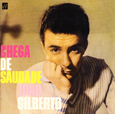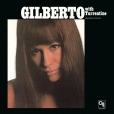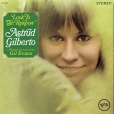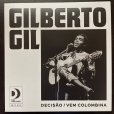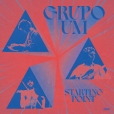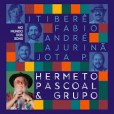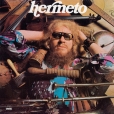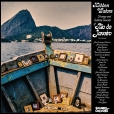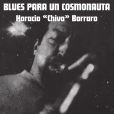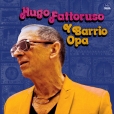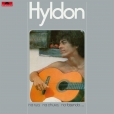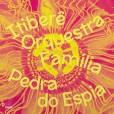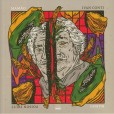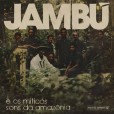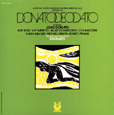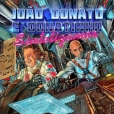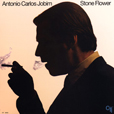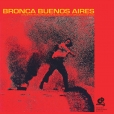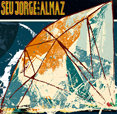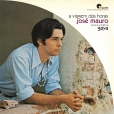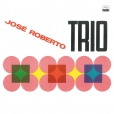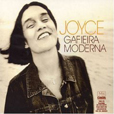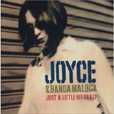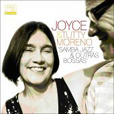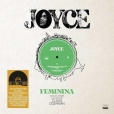Your basket is empty

Introducing the bossa nova in 1959, the original LP plus extras. Appearing effortlessly cultured and crafted, as natural as breath.
‘Verve By Request.’
‘Eighteen dedications, each hybrid and different, but driven by an utterly personal approach to bebop, Brazilian jazz, Africa and Brazilian roots; thronged with his signature battery of whistles, screams, scales, keyboard, kettles, spoons, squeeze toys, children’s voices, prepared piano and geese calls; with the band adding native instruments like pandeiro, surdo, caixa, apitos, bonecos and agogos, besides saxophones, flute, electric piano, electric bass and so on. Musicians and genres such as Terry Riley, Frank Zappa and Weather Report, Javanese gamelan and Indonesian kulintang come to mind, but there is no real overlap: Pascoal has his own special brew.’
His first recording with his band in fifteen years. “My music is not commercial; it’s not like selling bananas or soap. I’m not in a hurry to record.”
A landmark blend of MPB, soul, and funk, from 1975.
The genre-slaying, polyharmonic, polyrhythmic ‘universal music’ of Hermeto Pascoal and his bassist Itibere Zwarg, performed in 2001 by a workshop comprising twenty-nine of Rio de Janeiro’s most exceptional young musicians.
An overlooked masterpiece amongst recent Brazilian recordings: invigorating and marvellous; warmly recommended.
‘The city of Belém, in the Northern state of Para in Brazil, has long been a hotbed of culture and musical innovation. Enveloped by the mystical wonder of the Amazonian forest and overlooking the vastness of the Atlantic Ocean, its Amerindians, Europeans and Africans pioneered musical genres such as Carimbó, Samba-De-Cacete, Siriá, Bois-Bumbás and bambiá.
‘There was a radio station, a recording studio, a music label and a deep, cross-genre roster of artists. Beginning as simple gramophones connected to loudspeakers tied to lamp posts or trees, the aparelhagem sonora of Belém evolved into sophisticated setups, drawing thousands of revelers.
‘The music and tales found in Jambu are stories of resilience, triumph against all odds, and, most importantly, of a city at the edge of the Amazon which has always known how to throw a damn good party.’
‘The area’s best club music from the mid-‘70s, an exuberant, carnival-esque mishmash of local carimbó and siriá styles with big-band brass and frenetic Afro-Latino percussion. Best of all there are the three hip-swivelling cuts by Pinduca, founding father of lambada and king of Carimbó’ (Q).
Their legendary 1969 collaboration — featuring Whistle Stop, and Airto in full flight.
Testing bossa conventions, encouraged by ACJ’s move to Creed Taylor’s ambitious set-up, abetted by Deodato’s brilliant arrangements. From 1970, with Airto and Ron Carter; and some lovely electric piano.
A year after Os Tatuís, José Bertrami returned to the studio, this time stripping back to a trio. Again featuring Claudio Henrique Bertrami on double bass, and with Jovito Coluna on drums, the José Roberto Trio recorded their one and only album in 1966, featuring compositions by Baden Powell, Manfredo Fest, and Marcos Valle. The LP also featured three of Betrami’s own compositions: the wistful Lilos Watts, the groovy Kebar, and the dazzling Talhuama.
Another jewel from the golden age of the Brazilian bossa jazz trio — Bossa Três, Milton Banana Trio, Tenório Jr,, Bertrami’s own Bossa Jazz Trio — ushered in by the Tamba Trio, and nourished along the way by jazz greats from Nat King Cole to Bill Evans,
